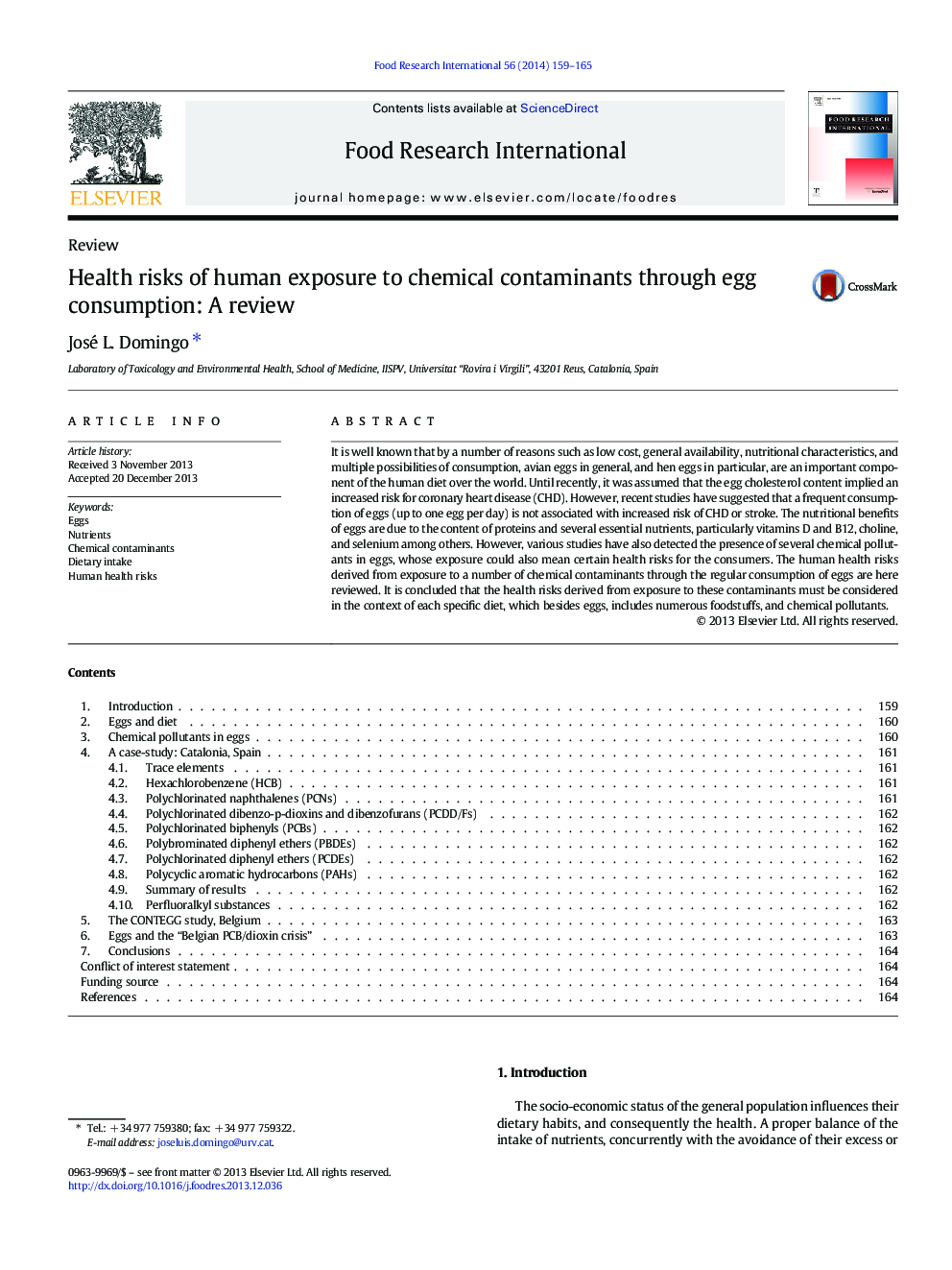| Article ID | Journal | Published Year | Pages | File Type |
|---|---|---|---|---|
| 6396970 | Food Research International | 2014 | 7 Pages |
Abstract
It is well known that by a number of reasons such as low cost, general availability, nutritional characteristics, and multiple possibilities of consumption, avian eggs in general, and hen eggs in particular, are an important component of the human diet over the world. Until recently, it was assumed that the egg cholesterol content implied an increased risk for coronary heart disease (CHD). However, recent studies have suggested that a frequent consumption of eggs (up to one egg per day) is not associated with increased risk of CHD or stroke. The nutritional benefits of eggs are due to the content of proteins and several essential nutrients, particularly vitamins D and B12, choline, and selenium among others. However, various studies have also detected the presence of several chemical pollutants in eggs, whose exposure could also mean certain health risks for the consumers. The human health risks derived from exposure to a number of chemical contaminants through the regular consumption of eggs are here reviewed. It is concluded that the health risks derived from exposure to these contaminants must be considered in the context of each specific diet, which besides eggs, includes numerous foodstuffs, and chemical pollutants.
Related Topics
Life Sciences
Agricultural and Biological Sciences
Food Science
Authors
José L. Domingo,
